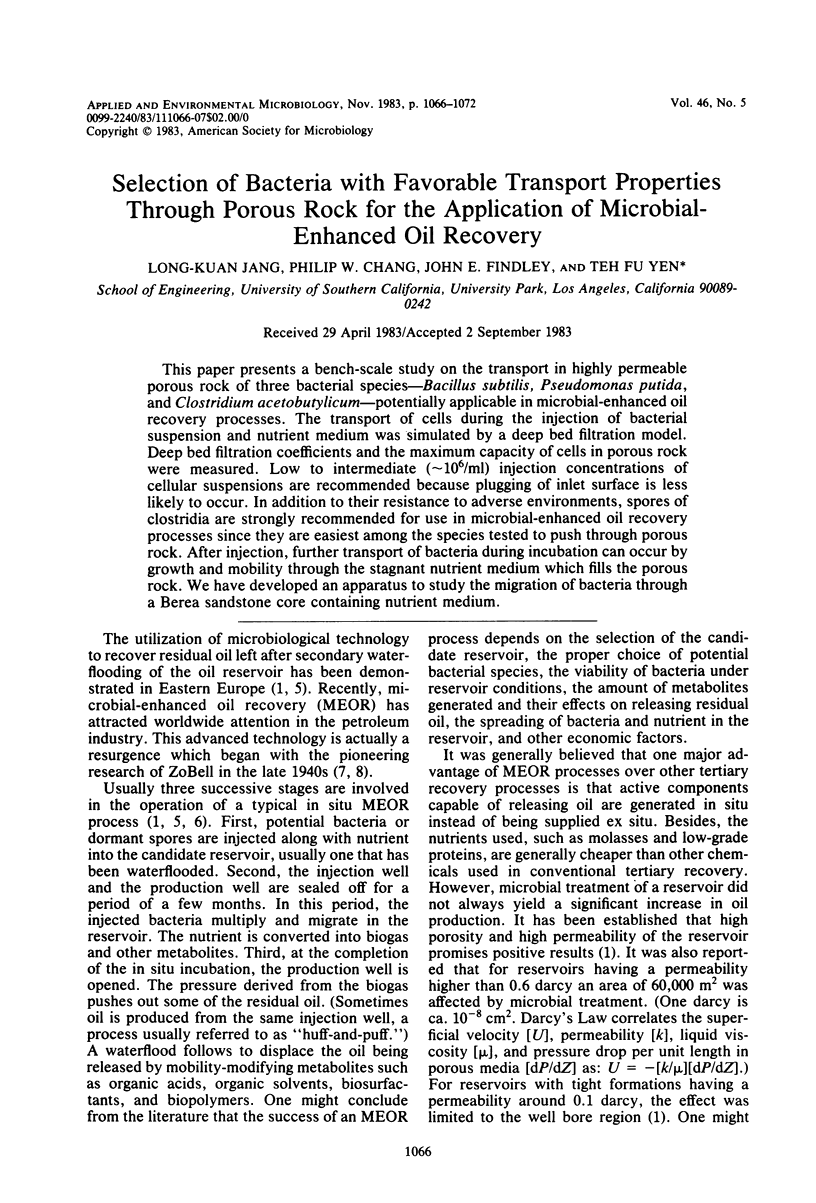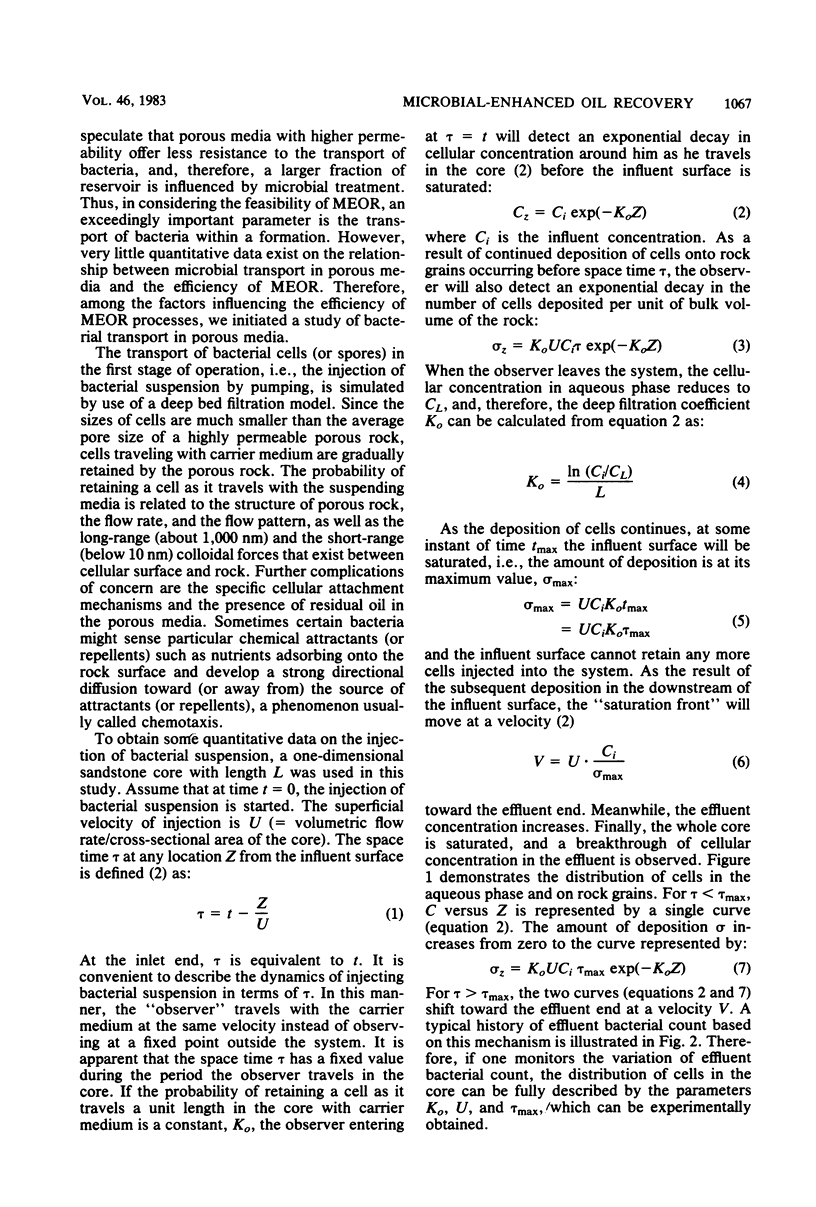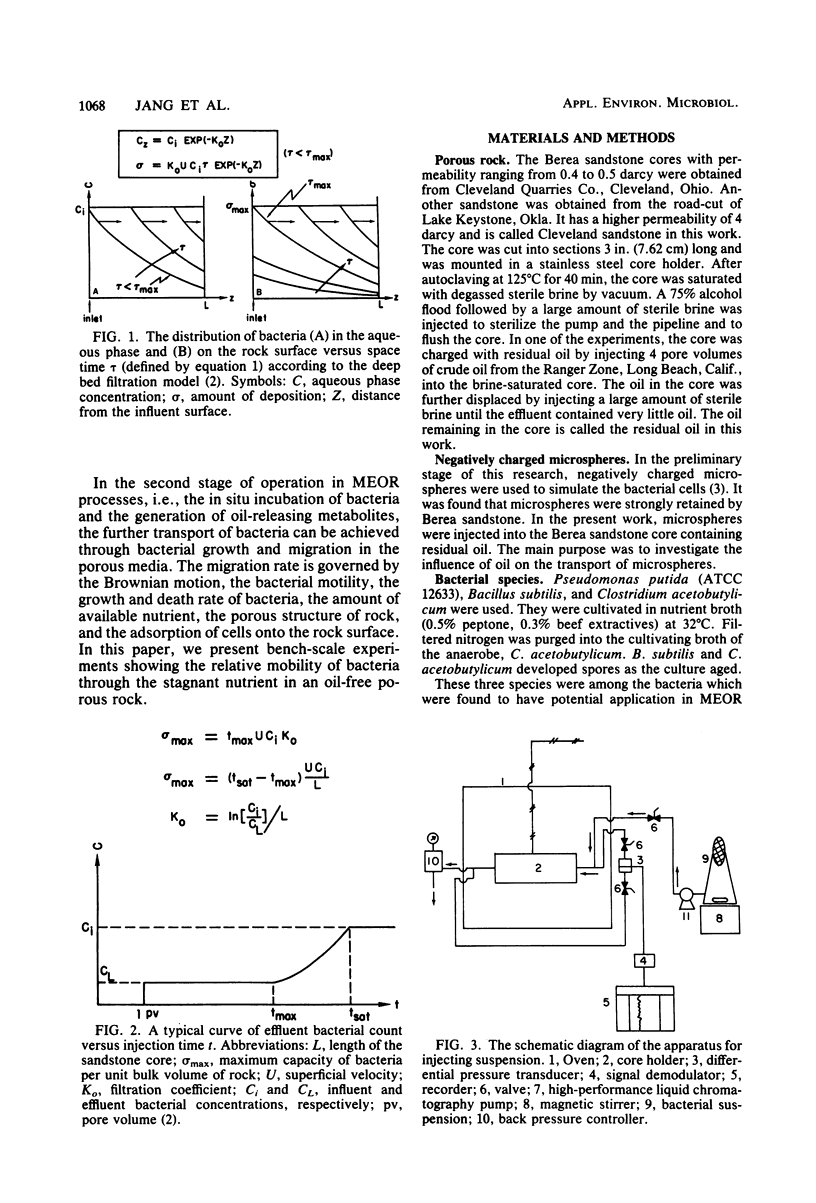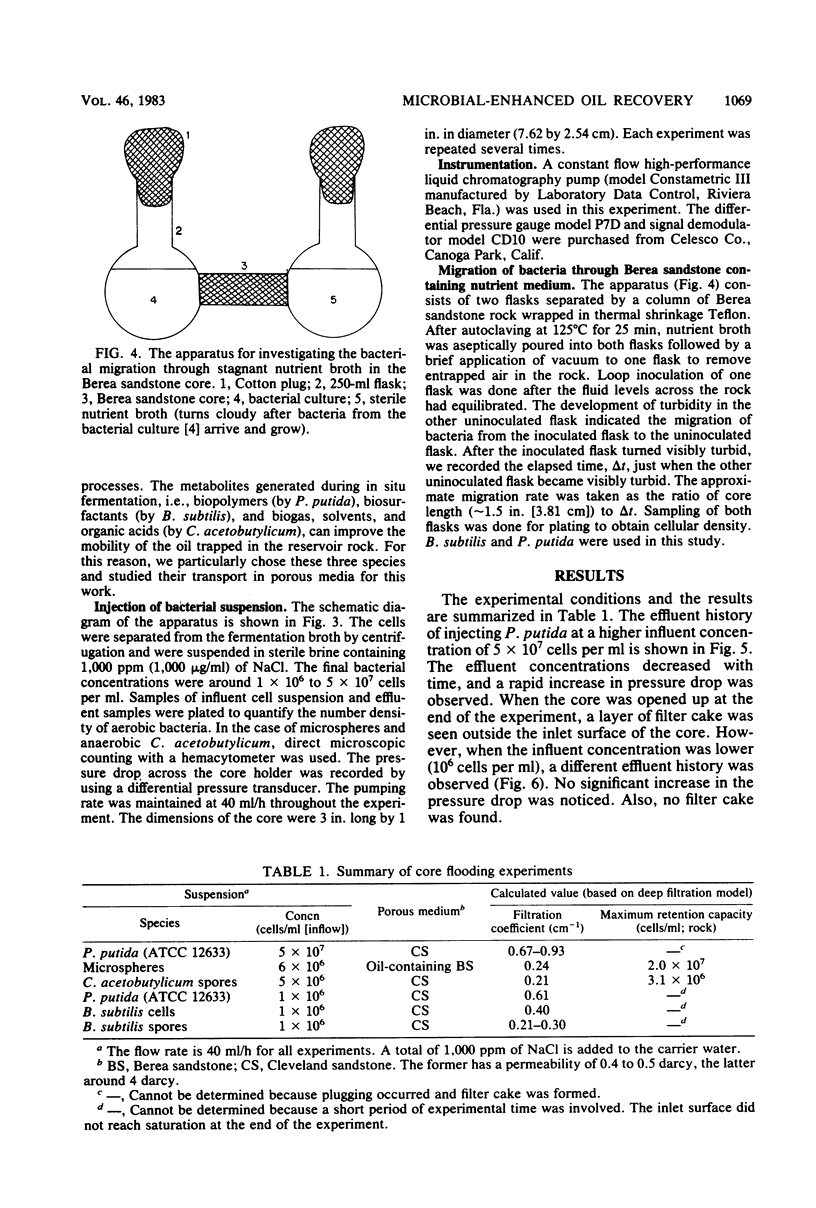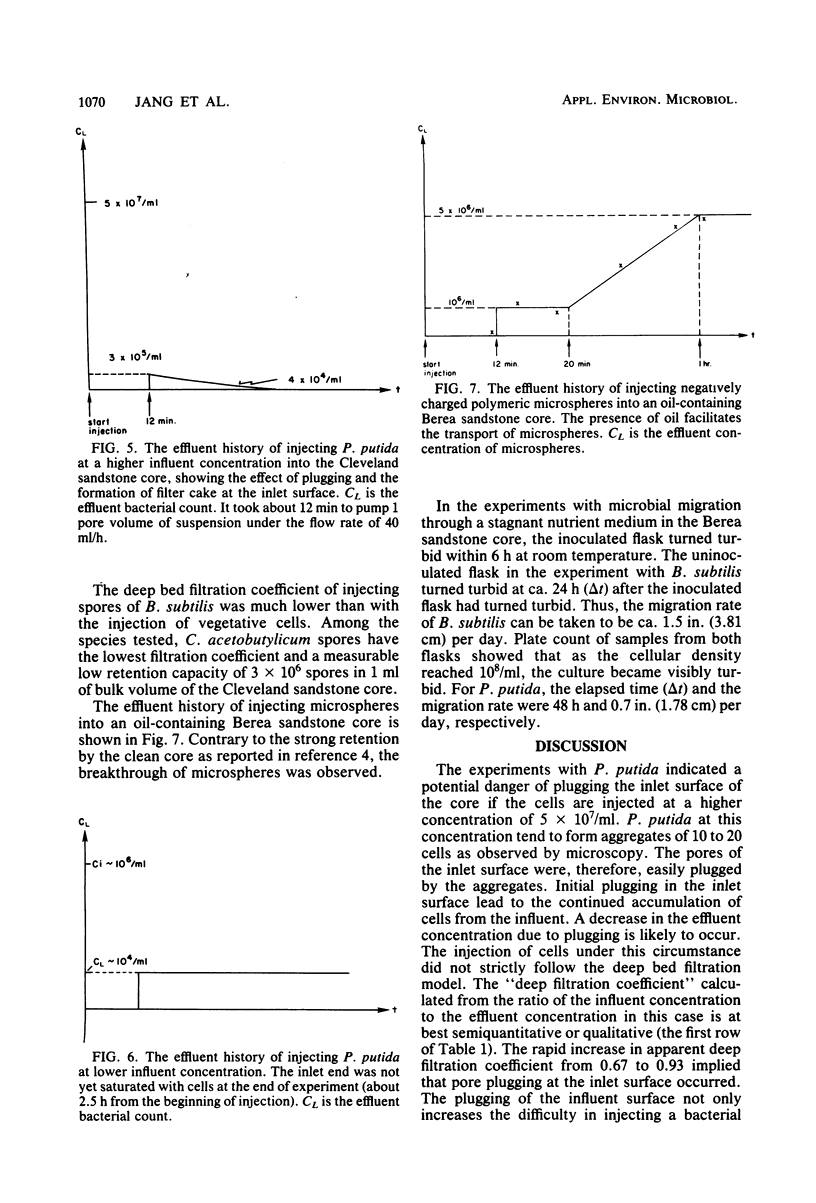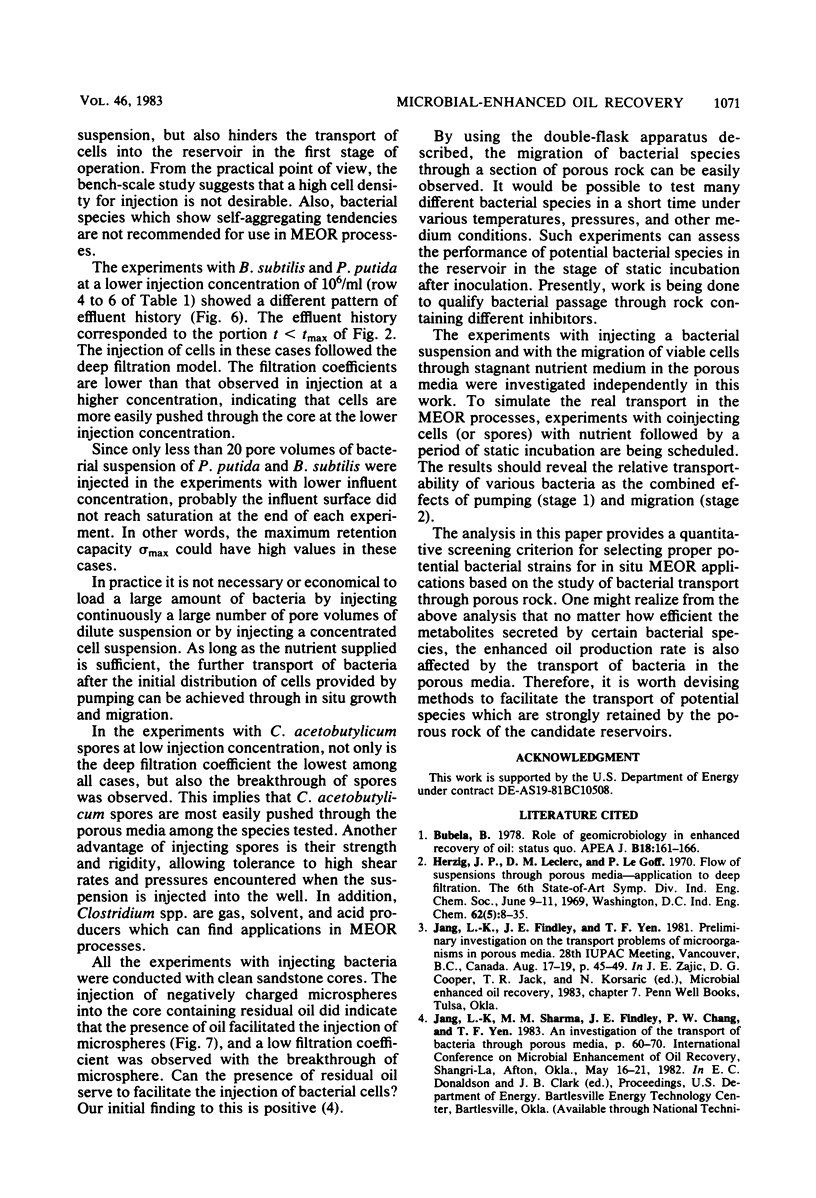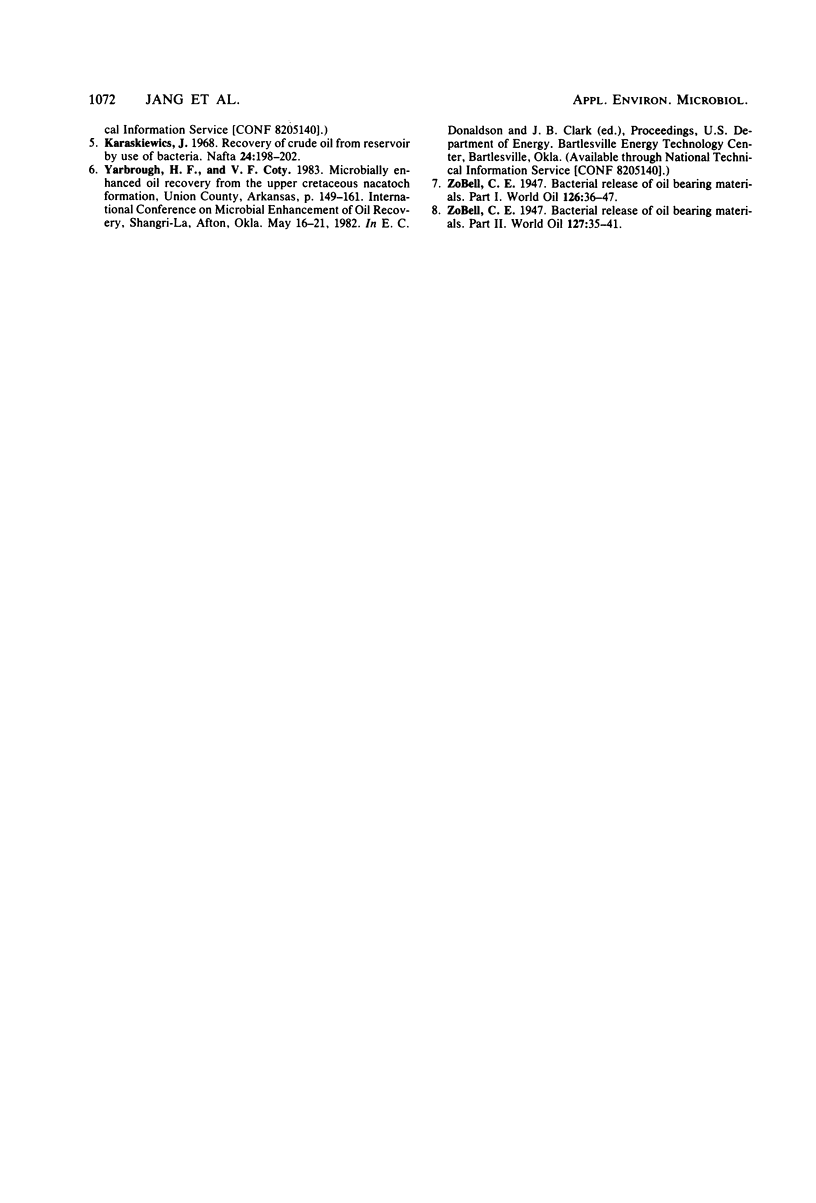Abstract
This paper presents a bench-scale study on the transport in highly permeable porous rock of three bacterial species—Bacillus subtilis, Pseudomonas putida, and Clostridium acetobutylicum—potentially applicable in microbial-enhanced oil recovery processes. The transport of cells during the injection of bacterial suspension and nutrient medium was simulated by a deep bed filtration model. Deep bed filtration coefficients and the maximum capacity of cells in porous rock were measured. Low to intermediate (∼106/ml) injection concentrations of cellular suspensions are recommended because plugging of inlet surface is less likely to occur. In addition to their resistance to adverse environments, spores of clostridia are strongly recommended for use in microbial-enhanced oil recovery processes since they are easiest among the species tested to push through porous rock. After injection, further transport of bacteria during incubation can occur by growth and mobility through the stagnant nutrient medium which fills the porous rock. We have developed an apparatus to study the migration of bacteria through a Berea sandstone core containing nutrient medium.
Full text
PDF